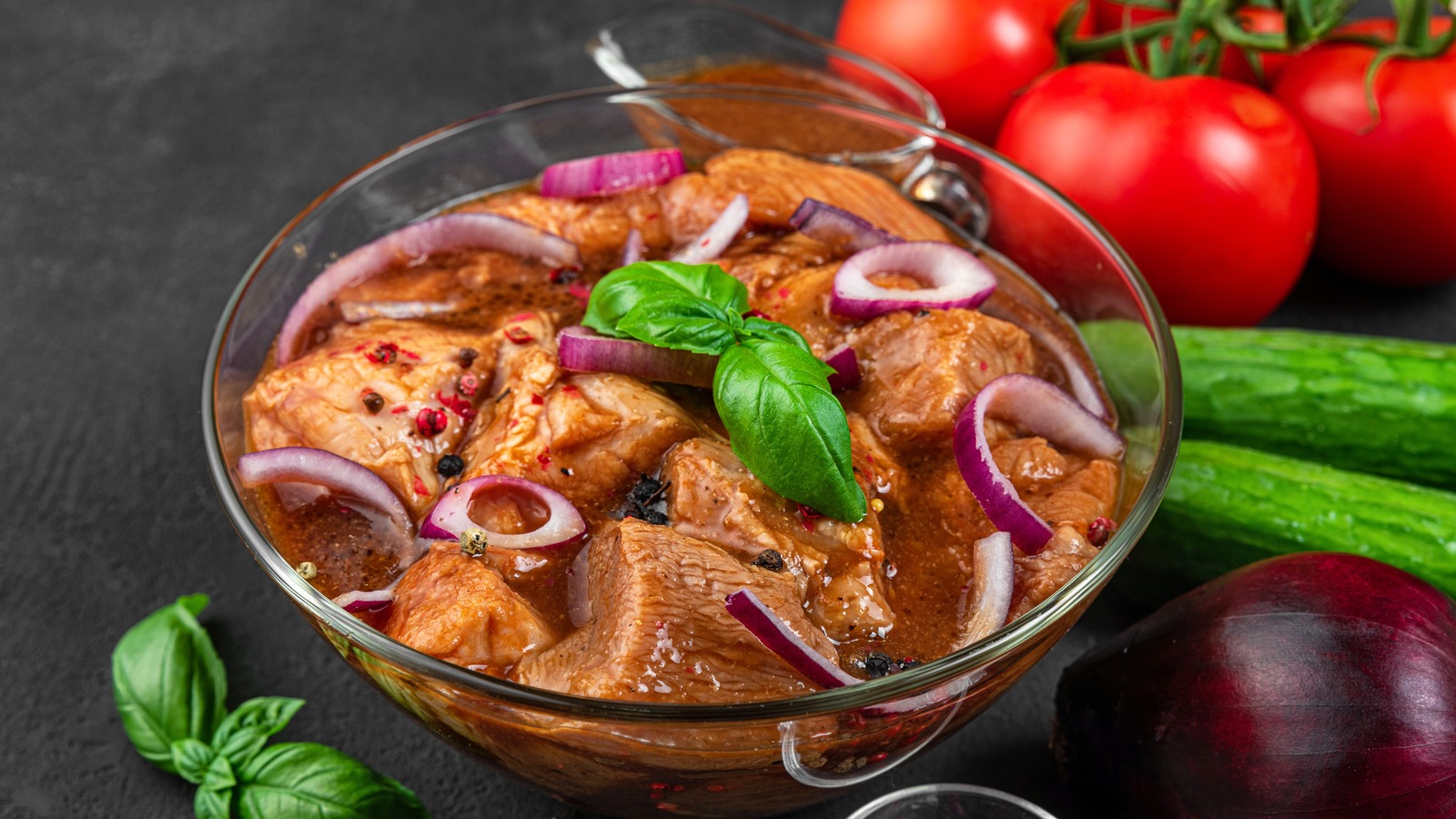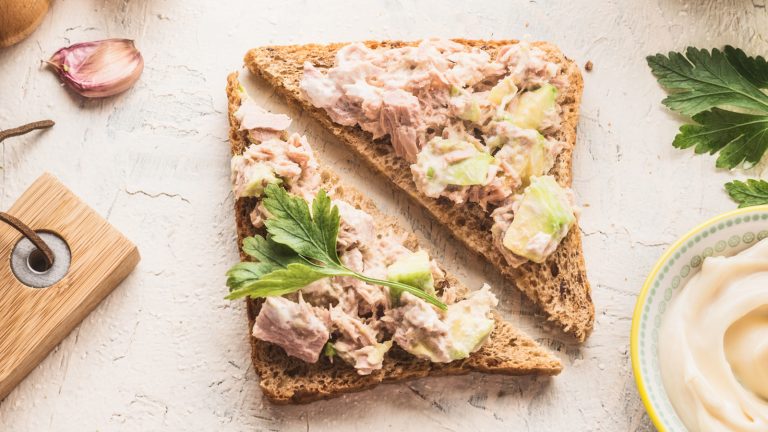Marinating meat is a tool of the trade that all cooks — professionals and home chefs alike — can employ to elevate a meal. Marinades serve multiple purposes, from creating a dynamic flavor profile to tenderizing the meat, not to mention the health benefits of certain marinating methods in preventing nasty carcinogens from forming during the cooking process. And to top it all off, the sky is the limit when it comes to building that flavor — you can be as creative as your palate will allow, experimenting with favorite ingredients and trying out new ones while you express your creativity through your creations. That creative freedom is one of the reasons we cook, after all, and a mouthwatering piece of meat, seafood, or even tofu is the reward for our efforts.
You don’t always need to marinate your meat before cooking it, but when you do, you want to do it right. Making a marinade is easy and fun and the end result is usually pretty delicious, as long as you make smart choices when building your recipe. To make sure you have the best chance at success, there are a few ingredients you’ll want to avoid so you don’t inadvertently ruin your dinner while trying to create a masterpiece.
Not all oils belong in marinades
Oil is a common ingredient in a good marinade, but not all oils are the same. They have different smoke points, meaning they will begin to burn at different temperatures, thus creating carcinogens to build up on the food and causing an unpleasant, rancid taste. The smoke point, therefore, dictates the best use for an oil. Low smoke point oils, such as walnut oil, flaxseed oil, and pumpkin seed oil, have a smoke point of 225 degrees Fahrenheit or less, and shouldn’t be used in marinades that will be cooked in high heat. Instead, they are best used in things like salad dressing that aren’t heated. Cooking food usually involves much higher temperatures, so instead, you’ll want to select a high smoke point oil (one that won’t start smoking until it reaches 400 degrees Fahrenheit or higher) like avocado oil and sunflower oil when building your marinade.
Go easy on the acid
Acid serves a purpose when it comes to marinating food, but too much of a good thing is usually a no-no. Such is the case with acidic ingredients like lemon juice, vinegar, and wine. While these ingredients will definitely add an incredible breadth of flavor to your food, they should be used sparingly. Too much acid will actually cause the proteins in meat to break down, causing discoloration and a change in texture resulting in a mushy, unappetizing piece of meat. The next time you want to add a bit of acid to balance out your marinade and want to reach for some lemons, put a bit of juice in your marinade and use the rest of the fruit to make lemonade so you don’t have to worry about wasting it.
Don’t forget to drink enough water
Water is good for our bodies, but not so much for our marinades. With so many great wet ingredient options to put in your marinade like soy sauce, olive oil, a bit of red wine, or even a creamy yogurt, why bother with water? Your fridge might be full of high-quality bottled H2O, but you won’t be fooling anyone by skipping your requisite daily water intake and putting it in your marinade instead. Water will simply dilute the flavor profile you are working so hard to build with your carefully chosen list of ingredients, thus negating all your hard work and time spent marinating, leaving you with a dull and tasteless piece of meat.
Leave the chunky ingredients for other dishes
Certain flavors are simply iconic when it comes to cooking, like garlic and onions. It may be tempting to throw whole cloves of garlic or chunks of onion into your marinade — after all, the bigger the ingredient, the bigger the flavor, right? Unfortunately, chunks of ingredients in your marinade will either slide right off on the barbecue or in the pan, or they might stick to the meat, keeping the meat from laying consistently flat on the cooking surface. To avoid getting an uneven cook or simply losing your flavor altogether, head to your spice rack and use powder versions of these powerful seasonings.
Know your fats
Fats serve a purpose when it comes to a marinade. Aside from adding rich flavor, they emulsify, which helps distribute the flavors throughout the meat. But if you don’t choose the right fat for the job, then you aren’t going to get results you can appreciate. Certain fats are going to solidify in the refrigerator or at room temperature, such as butter and coconut oil, making them poor choices for marinades. While they will certainly soften up outside of the fridge, you’ll want to keep your meat in the fridge while you marinate it, which means you’ll end up with a chunky marinade that doesn’t emulsify and evenly distribute the flavor throughout the meat it is supposed to be marinating. The amount of time the meat sits out to rest at room temp before marinating won’t be sufficient to make up for the time lost in the fridge with a clumpy marinade. Instead, stick to a usable fat like olive oil or duck fat, and save the butter and the coconut oil for frying.




